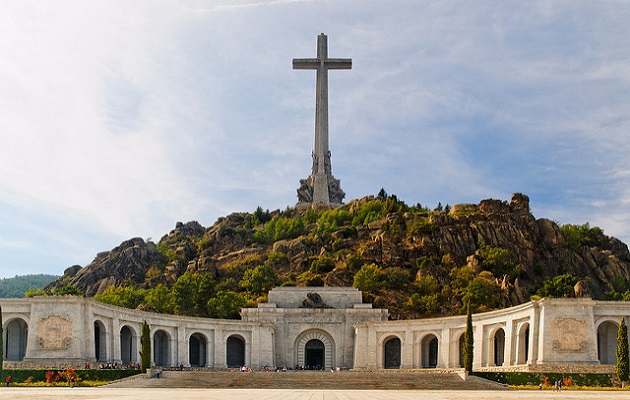Franco’s exhumation and the problem of Spain’s collective memory
“Spain has a huge task ahead of generating a big social consensus” about recent history, evangelicals say.
Protestante Digital · MADRID · 22 AUGUST 2018 · 11:59 CET

After many years of debate, Spain will exhumate the remains of Francisco Franco, the dictator that ruled the country between 1939 and 1977.
It was one of the promises of Pedro Sánchez, the new Socialist President of Spain. The decree-law will be approved on Friday and the exhumation works in the “Valley of the Fallen” are expected for September.
The government’s intention is to reconvert the monumental memorial and Catholic basilica erected by Franco in San Lorenzo del Escorial (near Madrid) into a neutral space to promote reconciliation.
HOW TO LOOK BACK TO THE CIVIL WAR?
In the las weeks, a few hundred nostalgics of the far-right regime used the opportunity to protest with fascist chants and pre-constitutional flags. But there is not a real debate in Spain about the figure of Franco – almost all Spaniards would define him as a cruel dictator.
The conversation in Spain has been about how the wounds of the Civil War (1936-39) can be closed as the population looks back to the conflict of the “the two Spains”, as historians describe the long ‘blue-red’ divide that still seems to be part of the country’s landscape.
PUBLIC CONVERSATION ABOUT THE PAST LACKING
“If a serious study is made, with consensus and a majority in the Parliament, then for sure the great majority of the population will support it”, consultant Olaf Bernárdez says. “The problem appears when things are done quickly”.
The issue of the Civil War and the dictatorship is “still not resolved” the expert explains. “It has been left sleeping in a relative oblivion. During the transition to democracy, the issue was not touched, hoping that time would heal the wounds”.
A problem, Bernárdez says, is that when Spain’s 20th century history is addressed, “it is done more from a political than from a historic perspective”.
THE DIFFICULT PROCESS OF HISTORIC MEMORY
Evangelical Christians were one of the minorities that were harassed during the dictatorship. Churches were closed and Christians isolated.
In the view of Protestant history expert Evangelina Sierra, “moving the remains of Franco should have been the last chapter and final closure of transcendental period” in which “investigation, analysis and a profound social reflection would have created spaces of dialogue in which all sensibilities could have expressed themselves and listened to others”.
These processes of “memory and reconciliation - which have happened in other parts of the world - enable societies to look at their own traumas, accept their own contradictions, and admit that all sides were simultaneously victims and tormentors”.
According to Sierra, “this process that would help to build a plural society based on acknowledgement, confession and forgiveness” has never really happened, and this is why “the exhumation of Franco’s remains is in the news”.
MUCH WORK TO DO
“Spain has a huge task ahead of generating a big social consensus to construct a collective memory”, says Secretary General of the Spanish Evangelical Alliance, Jaume Llenas. “The Valley of The Fallen is a symbolic place where we could start. But later it will be necessary to continue with the common graves of the war and the post-war, and the return to the families of the remains of those who were killed, so that they have a chance to close the wounds and bury their relatives with dignity”.
“Everything we do as a society will one day be part of our history, and we will be judged for it”, concludes Evangelina Sierra. “In our case, what is transcendental is to be capable of heal the wounds in a healthy way. We must sit beside those who suffered”.
Published in: Evangelical Focus - europe - Franco’s exhumation and the problem of Spain’s collective memory
